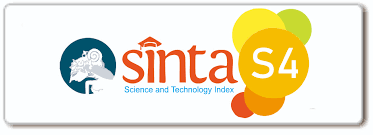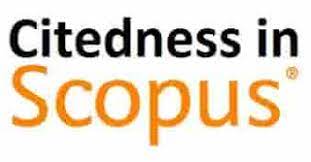The Relevance of The Madrasah Diniah Takmiliyah Curriculum to Islamic Religious Education
DOI:
https://doi.org/10.59373/attadzkir.v2i2.45Keywords:
Curriculum Development, Madrasah Diniah, Islamic Religious EducationAbstract
This article aims to describe the implementation of the Diniah curriculum in developing student character. The research method that has been used is qualitative with a case study approach. The reason this research was conducted is as evidence that the Diniah Takmiliah curriculum is still relevant to the current situation. The method of data collection with interviews, observation, and documentation. The determination of informants in this study is like a snowball from one informant to another so as to get maximum data. The findings of the article will provide a study of the relevance of the Diniah Takmiliyah Madrasah curriculum developed with Islamic Religious Education. study). One solution that can be done to overcome the problem of moral degradation is to optimize Islamic religious education for students. But in reality, the learning hours of Islamic religious education in public schools are very lacking. Given the importance of understanding Islamic religious education, SDIT Samawi takes a solution to the problem by implementing the Madrasah Diniah curriculum as a form of Curriculum Development.
Downloads
References
Agus, A., Juliadharma, M., & Djamaluddin, M. (2023). Application of the CIPP Model in Evaluation of The Inclusive Education Curriculum in Madrasah Aliyah. Nidhomul Haq : Jurnal Manajemen Pendidikan Islam, 8(1), 31–50. https://doi.org/10.31538/ndh.v8i1.2705
Ahid, N., & Chamid, N. (2021). Implementation of Indonesian National Qualification Framework Based Curriculum in Higher Islamic Education. Jurnal Pendidikan Islam, 7(1), 109–122. https://doi.org/10.15575/jpi.v7i1.12425
Ali, N. (2019). Integrative Curriculum of Religion and Science at Special Pesantren for University Students. ULUL ALBAB Jurnal Studi Islam, 20(1), 95–122. https://doi.org/10.18860/ua.v20i1.6353
Alp Christ, A., Capon-Sieber, V., Grob, U., & Praetorius, A.-K. (2022). Learning processes and their mediating role between teaching quality and student achievement: A systematic review. Studies in Educational Evaluation, 75, 101209. https://doi.org/10.1016/j.stueduc.2022.101209
Alwi, M., & Mumtahana, L. (2023). The Principal’s Strategy in Improving the Quality of Teacher Performance in the Learning Process in Islamic Elementary Schools. Kharisma: Jurnal Administrasi Dan Manajemen Pendidikan, 2(1), 66–78. https://doi.org/10.59373/kharisma.v2i1.18
Amirudin, J., Ruswandi, U., Erihadiana, M., & Rohimah, E. (2022). Implementation of The CTL Learning Model Through Islamic Moderate Values in Improving the Attitude of Students Tolerance in School. Nazhruna: Jurnal Pendidikan Islam, 5(2), 690–703. https://doi.org/10.31538/nzh.v5i2.2201
Anderson, R. C., Katz-Buonincontro, J., Bousselot, T., Mattson, D., Beard, N., Land, J., & Livie, M. (2022). How am I a creative teacher? Beliefs, values, and affect for integrating creativity in the classroom. Teaching and Teacher Education, 110, 103583. https://doi.org/10.1016/j.tate.2021.103583
Annisa, N., Akrim, A., & Manurung, A. A. (2020). Development Of Teacher’s Professional Competency In Realizing Quality Of Human Resources In The Basic School. Indonesian Journal of Education and Mathematical Science, 1(2), 156–160. https://doi.org/10.30596/ijems.v1i2.4590
Arif, M., Munfa’ati, K., & Kalimatusyaroh, M. (2021). Homeroom Teacher Strategy in Improving Learning Media Literacy during Covid-19 Pandemic. Madrasah: Jurnal Pendidikan dan Pembelajaran Dasar, 13(2), 126–141. https://doi.org/10.18860/mad.v13i2.11804
Arifin, Z., Desrani, A., Ritonga, A. W., & Ibrahim, F. M. A. (2023). An Innovation in Planning Management for Learning Arabic at Islamic Boarding Schools. Nidhomul Haq : Jurnal Manajemen Pendidikan Islam, 8(1), 77–89. https://doi.org/10.31538/ndh.v8i1.3237
Ashari, M. K., Faizin, M., Yudi, U., Aziz, Y., Irhamni, H., & Athoillah, S. (2023). Considering Local Government Policies Related to Madrasah Diniah Takmiliyah in Indonesia. Tafkir: Interdisciplinary Journal of Islamic Education, 4(3), 414–429. https://doi.org/10.31538/tijie.v4i3.411
Asse, A., Putri, F. F., Fatimah, T., Nursyam, N., & Faqihuddin, D. (2023). Diversity Problems in Students’ Educational Backgrounds and Learning Program Policies of Arabic Language Education. Tafkir: Interdisciplinary Journal of Islamic Education, 4(4), 535–546. https://doi.org/10.31538/tijie.v4i4.701
Azkiyah, Z., Kartiko, A., & Zuana, M. M. M. (2020). Pengaruh Kualitas Pelayanan Akademik Dan Promosi Terhadap Minat Siswa Baru Di Madrasah. Nidhomul Haq : Jurnal Manajemen Pendidikan Islam, 5(2), 290–303. https://doi.org/10.31538/ndh.v5i2.538
Bastas, M., & Altinay, Z. (2019). Employment for Disability: Human Resources Management in Higher Education for Quality. International Journal of Disability, Development and Education, 66(6), 610–615. https://doi.org/10.1080/1034912X.2019.1643456
Chande, A. (2023). Global Politics of Knowledge Production: The Challenges of Islamization of Knowledge in The Light of Tradition Vs Secular Modernity Debate. Nazhruna: Jurnal Pendidikan Islam, 6(2), 271–289. https://doi.org/10.31538/nzh.v6i2.3502
Eisenschmidt, E., Kuusisto, E., Poom-Valickis, K., & Tirri, K. (2019). Virtues that create purpose for ethical leadership: Exemplary principals from Estonia and Finland. Journal of Beliefs & Values, 40(4), 433–446. https://doi.org/10.1080/13617672.2019.1618152
Fathih, M. A., Supriyatno, T., & Nur, M. A. (2021). Visionary Leadership of The Head of Diniah Madrasah in Improving The Quality Santri. Nidhomul Haq : Jurnal Manajemen Pendidikan Islam, 6(3), 513–525. https://doi.org/10.31538/ndh.v6i3.1527
Fikriyati, M., Katoningsih, S., & Hasan, S. (2023). Use of Loose Part Media With Cardboard and Sand Materials in Islamic Children’s Schools. Nazhruna: Jurnal Pendidikan Islam, 6(1), 60–71. https://doi.org/10.31538/nzh.v6i1.2858
Haekal, T. M., W, S., Hafiz, A., Cakranegara, P. A., & Surahman, S. (2022). Principal Policy Analysis in The Management of Distance Learning in The Covid-19. AL-TANZIM: Jurnal Manajemen Pendidikan Islam, 6(1), 218–227. https://doi.org/10.33650/al-tanzim.v6i1.3320
Hermawan, Y. D. (2021). Manajemen Pembelajaran dalam Meningkatkan Pendidikan Karakter Guna Mewujudkan Generasi Emas Indonesia Siswa MTS Tahfidz Yanbu’ul Qur’an Kudus, Indonesia. DAYAH: Journal of Islamic Education, 4(2), 176. https://doi.org/10.22373/jie.v4i2.8307
Karim, A., Siregar, B., Prayoga, B. I., Suyitno, S., & Kartiko, A. (2022). Pengaruh Kompetensi Kepala Sekolah Dan Komitmen Organisasi Terhadap Motivasi Kerja Guru Pada Madrasah Tsanawiyah. Munaddhomah: Jurnal Manajemen Pendidikan Islam, 3(3), 306–318. https://doi.org/10.31538/munaddhomah.v3i3.287
Muawanah, S., Said, A., Furqoni, R., Muzayanah, U., & Mustolehudin, M. (2022). Evaluating Mandatory Tahfȋẓ Quran Program Implementation at Madrasah. Jurnal Pendidikan Islam, 8(2), 239–254. https://doi.org/10.15575/jpi.v8i2.20330
Muhammad, F. R., Nurjaman, U., Sukandar, A., Khori, A., & Lestere, L. (2022). Strategic Management in Improving the Quality of Islamic Religious Education Learning. Nidhomul Haq : Jurnal Manajemen Pendidikan Islam, 7(3), 318–329. https://doi.org/10.31538/ndh.v7i3.2611
Murharyana, M., Ayyubi, I. I. A., Rohmatulloh, R., & Suryana, I. (2023). Behavior Change of Darul Falah Senior High School Students After Attending Tabligh Akbar. Dirasah International Journal of Islamic Studies, 1(2), 68–77. https://doi.org/10.59373/drs.v1i2.17
Nurdiyanti, Y., Yamin, M., & Mustafa, I. (2022). The Curriculum Basis of Islamic Education Perspective Ali Ahmad Madzkur. Nazhruna: Jurnal Pendidikan Islam, 5(2), 555–571. https://doi.org/10.31538/nzh.v5i2.2001
Pakpahan, P. L., & Habibah, U. (2021). Manajemen Program Pengembangan Kurikulum PAI dan Budi Pekerti dalam Pembentukan Karakter Religius Siswa: Management of IRE Curriculum Development Program and Character in Forming Student’s Religious Character. Tafkir: Interdisciplinary Journal of Islamic Education, 2(1), 1–20. https://doi.org/10.31538/tijie.v2i1.19
Ro’is, M. Y., & Rokhman, M. (2021). Principal’s Strategy in Developing Al-Qur’an Learning in Madrasah Tsanawiyah. Munaddhomah: Jurnal Manajemen Pendidikan Islam, 2(2), 103–115. https://doi.org/10.31538/munaddhomah.v2i2.77
Suhifatullah, M. I. (2022). Visionary Leadership of The Principal in The Implementation of Character Education at SMA Plus PGRI Cibinong Bogor Regency. Edukasi Islami: Jurnal Pendidikan Islam, 11(01), 257–268. https://doi.org/10.30868/ei.v11i01.2253
Yanto, M. (2021). Management Problems of Madrasah Diniah Takmiliyah Awaliyah Rejang Lebong Old Religious Units in Memorizing Al-Qur’an Juz Amma. Nazhruna: Jurnal Pendidikan Islam, 4(2), 235–248. https://doi.org/10.31538/nzh.v4i2.1433
Downloads
Published
How to Cite
Issue
Section
License
Copyright (c) 2023 Maya Lutfia, Yusuf Suharto, Fuad Srinio

This work is licensed under a Creative Commons Attribution-ShareAlike 4.0 International License.

At-Tadzkir: Islamic Education Journal by Perkumpulan Dosen Tarbiyah Islam Indonesia is licensed under a Creative Commons Attribution-ShareAlike 4.0 International License.
Based on a work at http://at-tadzkir.pdtii.org/index.php/tadzkir/index.








